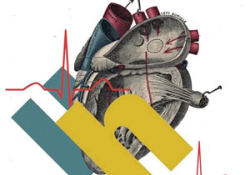Divertimento: Artificial Nonsense

We are not in the era of artificial intelligence, cybernetics, robots (or reboots), WhatsApps, Zooms, Facebooks, or anything of the kind. We are in the age of utter sloth. All of us, sitting around quietly at home, tapping away at the keyboard and obeying orders to keep from having to think. What’s all this about thinking? Who would even dream of doing it? What’s it for? Quite unnecessary!
Let the great gods of creation do the thinking.
The great inventors of all that came before.
Deus ex machina.
Truer words were never said.
We are witnesses to the grand theater of the world.
We are puppets manipulated by strings and find ourselves in grotesque positions when we get left behind somewhere.
I don’t get up to look things up in the dictionary anymore; Wikipedia tells me all I need to know.
The human body will change: a substantial development of the buttocks.
Fingers will erase their own prints.
The back will assume the form of a continuous curve.
Feet and legs will weaken.
Lateral vision will cease to be, and eyes will always look straight ahead.
It will be the kingdom of immobility.
And the empire of beloved sloth.
No one will leave their homes.
Everything within reach of the hands and fingers.
Going to the movies, the theater, and the circus at home.
Going to school, college, and conferences in front of the computer.
Online, online. Well aligned.
After all, the world obeys the law of least resistance.
Will anyone get bored?
Will there be anybody who says, “I’m going to scale a mountain, swim in a river, climb a tree, ride a horse, go see the sunset and the moonrise”?
In short: the real world.
If there is, they have my respect.
Along with artificial nonsense comes the veneration of velocity.
It will be the kingdom of immobility. And the empire of beloved sloth.

Everything should be faster.
That’s what the ads say.
More and more mega.
Bytes and megabytes.
Gigabytes.
Take your pick.
Long live velocity.
This, of course, reminds me of Milan Kundera and his book about the advantages of Slowness. Slowness becomes ever more indispensable, or, as a movie title puts it, Stop the World: I Want to Get Off. I might add: Here’s the corner, get off.
As I have mentioned on other occasions, I will never forget when the first computers appeared. The National Autonomous University of Mexico offered professors a chance to buy them at an affordable price. I set aside my typewriter, either a Remington or a Smith-Corona, I don’t remember which, and tried out the new machine, whose brand I don’t remember either. I proudly shared this news with my editor, Joaquín Díez-Canedo Manteca, claiming it would let me write faster. His response was categorical, delivered as always through his ubiquitous pipe: “And to what end would you want to write faster?”
Why is greater speed desirable? If you are driving down the highway and your vehicle is going faster and faster, you won’t be able to enjoy the scenery. If food takes just a couple of minutes to cook in the microwave, does it taste any better?
Whether you are naturally or artificially intelligent, take your time, rest, think, and, no matter what, join the ranks of those creators who still believe in fairy tales. Because artificial intelligence is a fairy tale.
On the other hand, artificial nonsense is for real, the genuine article.
No need to know the difference.
Nonsense helps reveal truths.
Negativity leads to positivity.
Darkness prizes the light.
Noise yearns for silence.
At the end of the day, it’s all about words.
And words are open to interpretation.
Words are artificial, too.
All language is artificial.
Intelligent or not.
I take it back.
I am going to step out into the world.
Here I am again.
For better or worse.
Translation from the Spanish
Editorial note: First published in Spanish in Literal, May 17, 2024.













